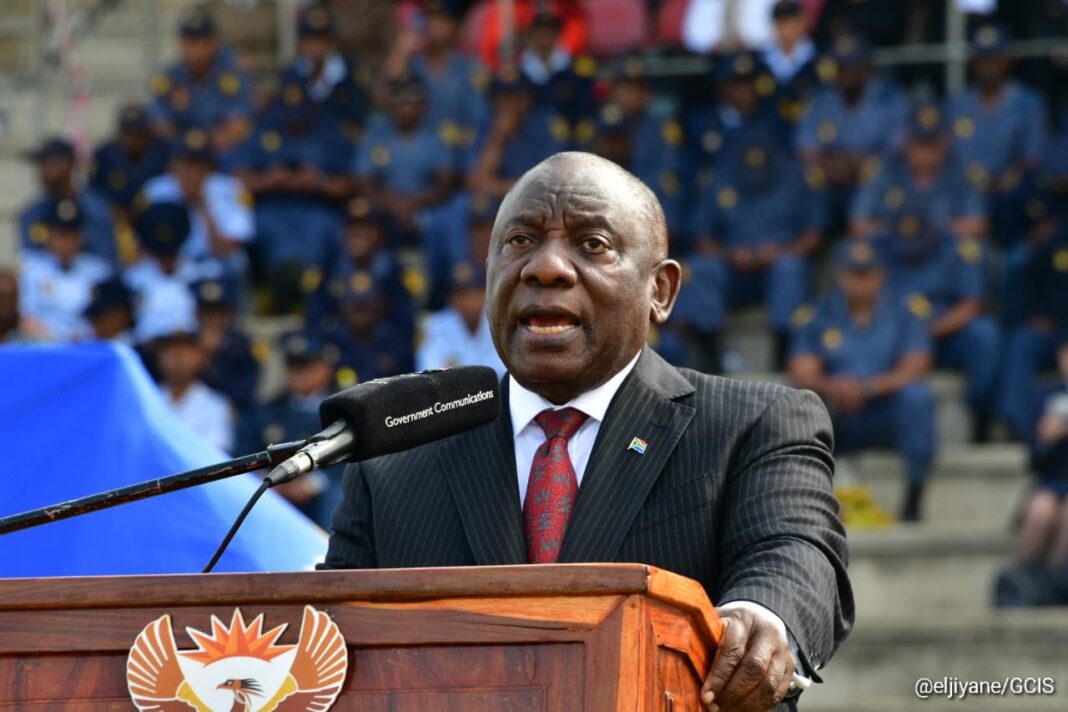Johnathan Paoli
President Cyril Ramaphosa has announced the findings of the Lady R panel investigation which confirmed that the Russian ship was offloading military equipment destined for the SANDF, ordered by the arms utility Armscor in 2018.
President Cyril Ramaphosa addressed the nation on Sunday evening, on the outcomes of the 15th BRICS Summit and on the conclusion of the panel investigation into the docking of the Lady R vessel in Simon’s Town, late last year.
In December last year, the Lady R docked at Naval Base in Simon’s Town, and allegedly loaded and unloaded with cargo under what many have deemed suspicious circumstances.
On 11 May this year, the US ambassador to South Africa, Reuben Brigety, accused the country of supplying arms to Russia during the December 2022 docking of the Russian ship.
Speculation arose in conjunction with a previous South African hosting of a naval exercise, Mosi II, with Russia and China that coincided with the one year anniversary of Russia’s invasion of Ukraine.
The diplomatic incident caused increasing tensions with the United States and sections of the west, the effects of which impacted upon the South African economy.
“The allegations leveled against our country had a damaging effect on our currency, economy and our standing in the world,” Ramaphosa admitted in his address.
Following the failure of Brigety to provide evidence, the Presidency named a three-member panel with retired judge Phineas Mojapelo as chair and Advocate Leah Gcabashe SC and former deputy minister of basic education Enver Surty as its other members.
The president said that the panel visited Simonstown naval base, acquired oral evidence under oath from 50 government employees and examined over 100 documents which were submitted to the panel.
Ramaphosa said that the panel found no evidence to support the claim that the ship transported weapons from South Africa destined for Russia, finding no evidence of any weapons being loaded for export.
The panel found that the ship had docked to deliver equipment that had been ordered for the SANDF in 2018 by the arms procurement company, Armscor.
The president said, as per the terms of the purchase agreement, neither the national defence force nor Armscor had any control over the means by which the supplier transported the goods, and insisted that only an import permit was issued and no export permits.
Ramaphosa said that while the panel found no evidence of any criminal activities, it made findings and recommendations with respect to the functioning of the National Conventional Arms Control Committee as well as recommendations concerning the improvement of communication between Ministers and government officials, including the adequacy of the relevant administrative processes.
The president announced that the full report would remain classified, citing national security and the safety of SA military personnel, with an executive summary being issued on Monday.
“In deciding not to release the report, I have taken account of the laws that both mandate openness and transparency and require that certain information that may be prejudicial to the defence and security of the Republic be kept classified and confidential,” Ramaphosa said.
He further said providing full details of the report would expose military details concerning the country’s defence forces to the world and place the lives of soldiers and others on the ground in danger, and that the need for confidentiality was both necessary and justified.
However it still remains unconfirmed whether civil society group Organisation Undoing Tax Abuse (OUTA)’s demand for the public sharing of cargo information and more transparency concerning SA arms sales in general will be upheld constitutionally, considering the President’s executive justification in the interest of security and curiously remaining silent over who exactly the supplier was.
INSIDE POLITICS

